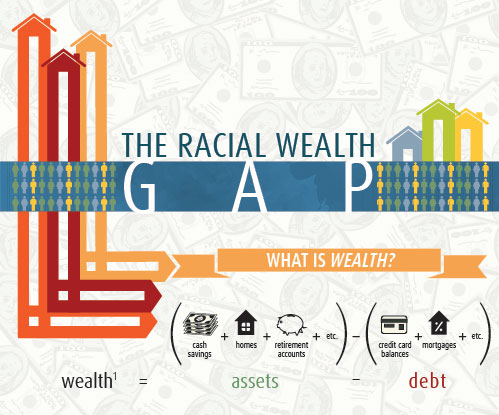Economy

Too much religion can harm a society’s economy by undermining the drive for financial success, according to a new study in the journal Social Psychological and Personality Science.
The study of almost 190,000 people from 11 religiously diverse cultures is raising eyebrows among some of England’s religious leaders for suggesting Judaism and Christianity have anti-wealth norms.

Two Sunday meetings prevented my going to the country with the family.
So on Saturday, I took a long walk up the Hudson River and then sat beside an open window overlooking the apartment house courtyard and felt a cool breeze.
No, it wasn’t the same as a screened porch upstate. But it worked. Why? Because I made it work. I was motivated to step away from my desk and do something different.
Could I have had a more perfect day? Sure, I suppose so. But I didn’t need perfection. I just needed something different. Yes, I was “settling,” as they term it. But that’s part of maturity: knowing that progress matters more than perfection. Sometimes you don’t get exactly what you want, and making do can be enough. Tweaking the day can make it a better day.
Yet many people continue to chase perfection and refuse to compromise with realities that fall short.
CYNTHIA MOE-LOBEDA is a Lutheran feminist ethicist trained at Union Theological Seminary in New York who teaches Christian ethics, gender, and diversity studies at Seattle University. The author of several previous books in Christian social ethics, she has emerged as a significant voice in contemporary Christian economic, ecological, and public ethics.
The evil considered in Resisting Structural Evil is primarily the collective ecological and economic damage being done by wealthy global North folk—such as most readers of this review—through the indulgent and wasteful way of life that we have been socialized into accepting as normal despite its disastrous implications and effects. This evil is structural and driven largely by the unaccountable and nearly unlimited power of the modern corporation.
One reason our ecological and economic injustice can be labeled as evil is because it is largely hidden from our eyes—or if we see it, it is accepted as simply the way things are and always have been and always will be. So we live off the suffering of the people whose land we take or despoil, or whose livelihoods we destroy, or whose water we poison, or whose labor we exploit to get our “everyday low prices.” And we go merrily about our wealthy and comfortable way in a state of what the author describes as “moral oblivion.”
Moe-Lobeda takes the reader on a journey intended to end such moral oblivion. I find the book to be primarily an exposé of the connections between the “American way of life” and the injustices on which it is built—and which it perpetuates. Among these injustices is harm to the earth, which has both terrifying long-term implications for the livability of our planet in the future and concrete short-term costs for those invisible neighbors of ours who suffer ecological harm so that we might drink our soft drinks and get the latest electronics.

Jesus calls us to help the poor. That is a point that few would debate. One key indicator of our obedience is how we treat the poor and vulnerable among us. Where we fall into debate is how to do it the most effectively.
One thing that gets lost in the rhetoric is that many of the solutions we have are already effective — they just need to be improved. And we have plenty of ideas that already help lift families out of poverty while encouraging them to work. Sounds perfect, right?
The Earned Income Tax Credit (EITC) is one such program. It provides a tax credit based on how much income a worker takes in — the more income they take in, the more benefit they get, up to a maximum point when it starts to phase out. This gives working people incentive to keep working rather than rely on assistance alone.

This week an online ad informed me that Monsters University has finished first at the box office for two weeks running. I’m convicted by the statistic; I saw it somewhere between Northfield, Minn., and the Twin Cities on the “Largest Movie Screen in Minnesota” last week while visiting my brother. But it struck me that the movie presents – probably quite by accident – an opportunity to talk about a deep moral reality. So what follows will only begin obliquely by talking about cute monsters. And it will contain (mostly minor) spoilers. You’ve been warned.

Brazil and the World Cup are in the news now, but not in the way that pleases the Brazilian government. Crowds are gathering in the streets around football (soccer) stadiums where Confederation Cup games are being played but not to buy tickets or get autographs of their sports idols. They are congregating to protest against the 2014 World Cup coming to Brazil. Brazilians protesting football? Upset about hosting the World Cup? Something has gone seriously wrong. This is like the French boycotting wine or Italians accusing pasta of undermining family values.
Even Americans, confused as we are about why the rest of world insists on calling soccer “football,” know that the outcome of a football match can launch an entire nation into elation or despair. But no matter the sport, fans around the world follow the same emotional pattern: they are up when their team is up and down when they are down. World Cup championships played out on a global stage provide the winning nation with an outsized cathartic event for the pent up frustrations that accumulate with the stress and strains of daily life. And even without streets clogged with protestors, if you are a football fan living in one of Brazil’s major cities, the typical daily grind is almost unbearable. Here’s an account from an Al Jazeera reporter who lives in Brazil:
It is 8am and a bunch of people line up to get on a bus on Faria Lima Avenue in Sao Paulo. This may be their third transfer in the daily ordeal of travelling to work from the outskirts of Sao Paulo. When the bus slows down, people start to nudge right or left, hoping not to be left behind. Once they get on, it is so full that finding a little space to stand is only for the truly crafty.
After a one-hour journey through the infamous Sao Paulo traffic and pothole-ridden roads, crammed in with 100-plus people, it feels more like a ride on a rodeo horse than a means of transportation — all at a cost of 3.20 Brazilian Reals ($1.50) and your dignity.

People of faith and immigration activists around the country have their eyes fixed on Congress this month as both houses take up immigration reform. The bipartisan proposal being considered in the Senate would bring hope and opportunity to 11 million new Americans who aspire to be citizens, doing much to fix our broken immigration system.
While the path forward will be difficult, there is some good news this week that will influence the way policymakers think about this issue.
Conservative lawmakers have long been worried about the future costs of immigration reform, which they predicted would come from federal programs designed to help the poor such as Medicaid. They asked the Congressional Budget Office – a non-partisan government agency tasked with evaluating the cost of all legislative proposals – to give them a report far into the future to make sure that these costs were not hidden in their analysis.
In reality, the CBO found that bipartisan immigration reform in the Senate would trim nearly $1 trillion off the federal deficit, while spurring the economy and creating jobs.
Eleven years after New York Mayor Michael Bloomberg took office, more than 50,000 people rested in homeless shelters and on the streets of New York City last night — nearly 45 percent of which were children. As numbers have reached an astonishing height within shelter population, New Yorkers are hoping the next mayor elected will provide permanent shelter and resources for families and children in need. The New York Times reports:
The next mayor will have to do better by them than Mr. Bloomberg. He once proposed energetic and aggressive initiatives on behalf of the homeless. Now he speaks of them with resentment: “You can arrive in your private jet at Kennedy Airport,” the mayor said recently, “take a private limousine and go straight to the shelter system and walk in the door and we’ve got to give you shelter.”
Read more here.

New York Times op-ed columnist, David Brooks, responded, this week, to an intriguing article in the Washington Post about Jason Trigg, a recent MIT graduate, who chose a career on Wall Street as a way to redistribute wealth.
Trigg’s plan is simple. Make lots of money. Live simply. Give lots of money. It’s not far from John Wesley’s advice of, “Earn all you can. Give all you can. Save all you can.” Actually, it’s almost identical.
Brooks perceptively sees the dangers and pitfalls in the road ahead. Most specifically, wealth and the surrounding environment can have a corrosive effect, no matter good our intentions. Brooks writes:
…the brain is a malleable organ. Every time you do an activity, or have a thought, you are changing a piece of yourself into something slightly different than it was before. Every hour you spend with others, you become more like the people around you.
Gradually, you become a different person. If there is a large gap between your daily conduct and your core commitment, you will become more like your daily activities and less attached to your original commitment.
But, while I echo Brooks concern, I disagree with his ultimate conclusion. He goes on to argue that we should pursue careers that elicit passion (seeming to indicate that hedge funds couldn’t be a passion for some people) and that if we truly care about children in Africa, it’s best to go there – not Wall Street.

The go-to number in American religion is “ASA” — average Sunday attendance. Or as an irreverent colleague put it, “Fannies in the pews.”
It’s a meaningless metric, but it’s easy. Open the doors on Sunday, wait for the stragglers, then dispatch ushers to count the house.
Entire methodologies for church development have been built around this number, as if fanny count dictated how a church should behave. Problem is, ASA isn’t a useful measure of quantity, and it says nothing about quality.
A much better quantitative measure would get at “touches,” that is, how many lives are being touched by contact with the faith community in its various Sunday, weekday, off-site and online ministries — and then, for a qualitative measure, asking how those lives are being transformed.
Those are difficult metrics to track, of course, and that’s why many congregations stick to ASA and shun the harder work of measuring outcomes and impact.
 The United States is the richest country in the world, but only three-quarters of Americans have enough to eat.
The United States is the richest country in the world, but only three-quarters of Americans have enough to eat.
New data from the Pew Research Center shows that nearly a quarter of Americans had trouble putting food on the table last year — 24 percent is a lot of hungry people in the richest country in the world. It’s not normal, either – most other advanced economies had much lower rates of hunger. We think that the U.S. economy is similar to that of Canada or Britain; our hunger rate is closer to that of Indonesia, South Korea, or Greece.
Numbers like that are shocking, because we prefer to think of ourselves in nationalistic terms. “The richest, most powerful country on Earth” definitely makes us feel better than realizing that things aren’t so great for many of us. One in four of us is hungry.
We don’t like to think about this, but we aren’t doing so well by a lot of standards. Last month, UNICEF published a report on child wellbeing in developed countries. The United States was ranked 26 out of 29, above Lithuania, Latvia, and Romania. Our children were doing worse than those of Greece.
Is this really where we want to be?

While having lunch recently with Harvard Professor Robert D. Putnam, I was asked an interesting question.
Putnam is appalled at the radical lack of equality of opportunity in the U.S. today, and he wanted to know if evangelical preachers would dare to say what his pastor said when he was a teenager. Putnam told me that back then, in the midst of Martin Luther King’s great campaign against segregation, his devout Methodist pastor dared to preach that “racism is a sin.”
Professor Putnam asked me, as an evangelical, whether evangelical pastors today would be ready to declare today’s great economic inequality of opportunity a sin. That’s a great question.

I believe that most people are good, decent folks who want to see their community thrive and be healthy. The can of worms with the globalized economic system we live with, however, is twofold. Firstly, it is pathologically designed to function towards injustice, and injustice implicates the exploitation, destitution, and ultimate collapse of local communities around the world, especially in the poorer countries. Secondly, this global economic system does all that it can to make “community” invisible. The vast majority of those coffee drinkers who stop by the local supermarket or coffee shop to buy a pound of coffee have no idea where there coffee came from, who picked it and under what consequences.
Thus, when one is confronted with the inevitability of making a “global” economic choice, my advice would be to take the time to think about what one would want for his or her own community, and then to question how that far-off, distant community across the world where this or that product is being produced is going to be affected. This is not going to be easy for it requires the determination to discover what is purposely being hidden by the designs of the global economic system. But that is perhaps the price we should be paying to be able to enjoy a hot cup of coffee grown thousands of miles away.

I was a nervous kid. Once, I got so freaked out by the prospect of a speaking part in my first-grade school play that my folks thought I had come down with appendicitis. But there were two times in particular that I remember descending into unmitigated panic. Both involved discussions with my dad about my career.
The first time, my dad was telling me about his year-by-year earning trends as an insurance salesman. He went from being one of several agents manning a booth in a Sears store to being the highest-earning employee in his major international company over about 15 years. He added zeroes to his income, and a passel of staffers, including my mom for a while (didn’t work out so well – they divorced thereafter).
At his height, he was earning upwards of half a million a year, and this was in the 80s. His company flew him all over the world, showered him with awards, and held him up as the high-water mark for all other agents to aspire to. I combined this remarkable achievement with the implicit cultural message that all generations exceeded their parents in earning power and went into an emotional tailspin.
How in the hell was I going to make that kind of money?
There are many reasons to support comprehensive immigration reform. As Christians, we point to the biblical call to welcome the stranger and love our neighbors as top reasons for our support. We refer to the God-given dignity of each person, acknowledging that God created and loves each person, regardless of their immigration status.
But it helps to remember that there are significant economic and political gains to be had, as well. A Politico poll shows that nearly two-thirds of Americans support comprehensive reform. As we push on our political leaders to make a decision this year, here are some of the other arguments we can use, as described in a recent article on Think Progress:
1. Legalizing the 11 million undocumented immigrants in the United States would boost the nation’s economy.
2. Tax revenues would increase.
3. Harmful state immigration laws are damaging state economies.
4. A path to citizenship would help families access health care.
5. U.S. employers need a legalized workforce.
6. In 2011, immigrant entrepreneurs were responsible for more than one-in-four new U.S. businesses.
7. Letting undocumented immigrants gain legal status would keep families together.
8. Young undocumented immigrants would add billions to the economy if they gained legal status.
9. And DREAMers would boost employment and wages.
10. Significant reform of the high-skilled immigration system would benefit certain industries that require high-skilled workers.
Read the article for a full explanation of each item.
BALTIMORE — A divided Catholic hierarchy on Tuesday failed to agree on a statement about the economy after a debate that revealed sharp differences over the kind of social justice issues that were once a hallmark of the bishops’ public profile.
The defeat of the document, titled “The Hope of the Gospel in Difficult Economic Times,” followed an hour of unusually intense debate among the 230 bishops gathered here for their annual meeting. It left many of them openly frustrated that the prelates have not made a joint statement about the nation’s economic woes four years after the recession hit.
“This document is dead,” New York Cardinal Timothy Dolan, president of the U.S. Conference of Catholic Bishops, said with obvious disappointment as he brought the gavel down on the debate after it failed to secure the two-thirds majority needed for passage.
IN SPRING 1986, a group of Italian activists led by Carlo Petrini launched a protest against the opening of a McDonald’s near the famous Spanish Steps in Rome. This protest marked the origin of the Slow Food movement, which has spread over the last 26 years to more than 150 countries.
Following this Slow Food effort came a host of other Slow movements—Slow Cities, Slow Parenting, Slow Money, and more—that collectively raise opposition to the speed and industrialization of Western culture. Slow movements are beginning to recover what we have lost in our relentless pursuit of efficiency. Many Christians have been challenged by these Slow movements to consider the ways in which our faith has begun to move too fast as we make sacrifices to the gods of efficiency.
This quest has sparked a renewed interest in the joys of sharing life together in local congregations and has intensified into a growing conversation—rather than a movement—called Slow Church. Slowness itself is not a cardinal virtue of Slow Church, but rather a means of resisting the present-day powers of speed in order to be faithful church communities.
The biblical vision of God’s mission in the world is God’s reconciliation of all creation (see, for example, Colossians 1:15-23 and Isaiah 65:17-25). But too often we narrow the scope of our faith and ignore the massive damage that incurs. Some Christians reduce the faith to four easy steps to stay out of hell, others to a set of techniques for growing a large church, and still others to a political ideology (of the Right or the Left). Christianity has also been reduced by some to a feel-good spirituality that has little or no bearing on the rest of our lives or in the public square.
ONE OF THE best things about growing up in the 1970s was Schoolhouse Rock! on Saturday morning TV. The day my high school history class began to study the preamble of the U.S. Constitution, we all broke into song: “We the People ... in Order to form a more perfect Union, establish Justice, insure domestic Tranquility, provide for the common defense, promote the general Welfare ...”
In the ’70s, Americans still believed those words; the general welfare was important to policymakers across the political spectrum. Today, we have a political discourse where the Republican presidential contender disparages the elderly and the unemployed for collecting benefits for which they’d paid into an insurance fund.
And now policymakers are allowing the looming “fiscal cliff” to threaten the U.S. economic recovery from the recent recession. At the end of this year (or a few months later if Congress kicks the can down the road), Congress and the administration must work out a compromise on spending cuts and revenue increases, or the economy will face deep, mandatory federal spending cuts and across-the-board tax hikes. Such deep spending cuts would devastate many programs that aid those most in need. And, in addition to hurting families, spending cuts at this point in the recovery threaten to derail economic growth and job creation.
In order to make sure fewer people need unemployment insurance benefits, Congress needs to run deficits for the next couple years. Economists are in general agreement that what the economy needs now is more fiscal expansion—that is, an agenda that will make investments that could create jobs and pave the way for long-term economic growth. Federal Reserve Chair Ben Bernanke pointed this out in a recent speech: “Fiscal policy, at both the federal and state and local levels, has become an important headwind for the pace of economic growth.”

Play along with me. If you had $1 million to spend to help stimulate the economy, what would you do? What would I do?
Option 1:
Give the money to a billionaire, in the blind hope that the billionaire will pass along that million to his employees in some form. Or that he’ll spend it on a nice luxury product that (hopefully) will be an American product. Or that he won’t exercise the many loopholes that still exist and he’ll give that whole amount back to the U.S. government to spend. And of course, pray that the money won’t go into an offshore investment account somewhere in the Caribbean or Switzerland.
But what would Jesus do? What investments would Jesus make that I would want to make as well?
Two words are dominating our current political dialogue: jobs and economy. Everyone seems to want more of the former and a quicker revival of the latter. Logically then, our nation should take any and all sensible and easy steps towards achieving those goals. If those actions also had positive humanitarian and moral outcomes, even better, right?
Sadly, Washington seems to be devoid of logic these days. The Center for American Progress has released a study showing that passage of the DREAM Act would create an economic boom of over $300 billion dollars and create nearly 1.5 million jobs — not to mention, it is just the right thing to do.
The politics needs to stop. The DREAM Act needs to pass. Read more about the economic difference it could make if Washington would take action by clicking HERE.